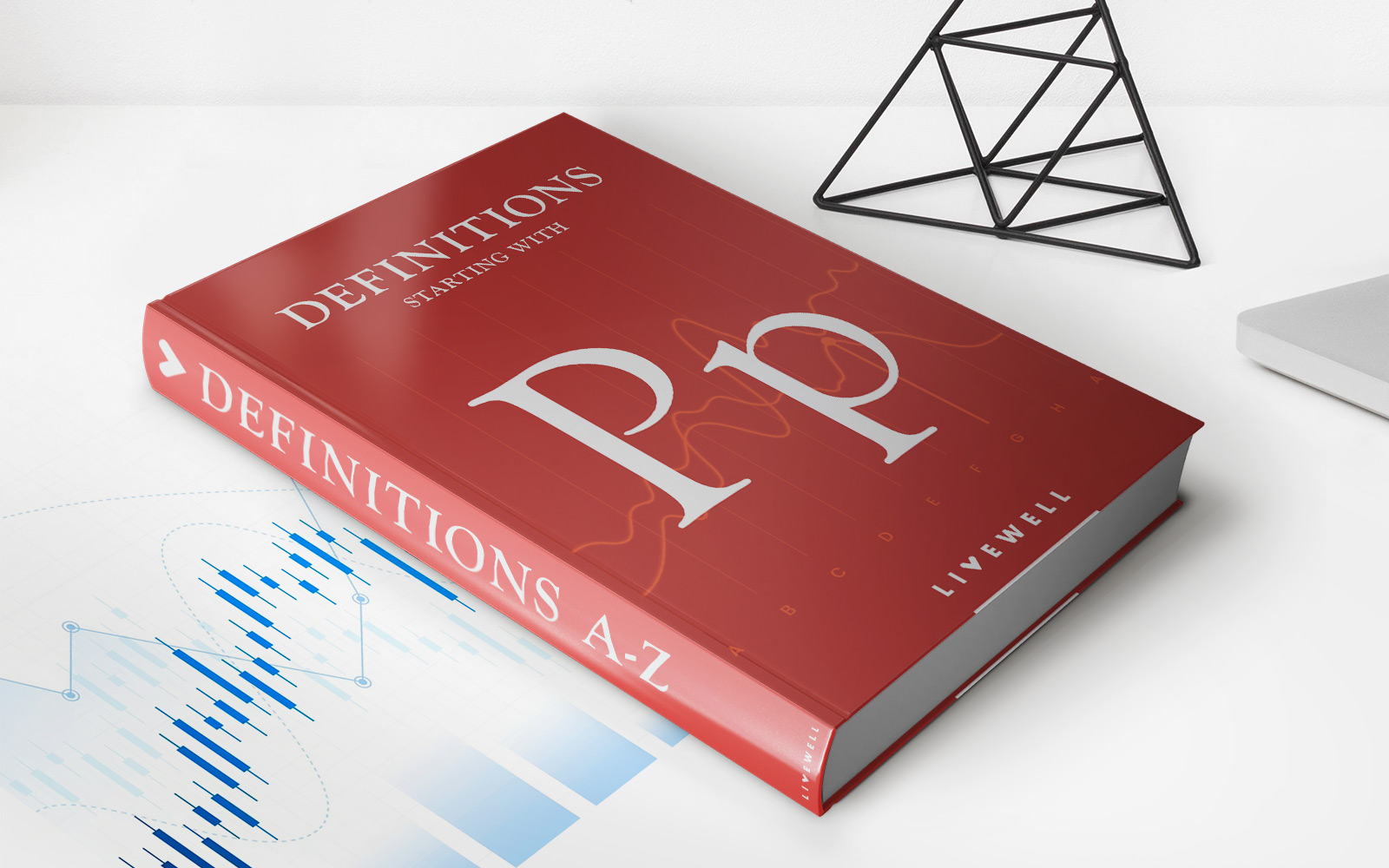

Finance
How Do Tax Deductions Work For 1099
Published: January 20, 2024
Learn how tax deductions work for 1099 and maximize your financial benefits. Discover expert tips and strategies for managing your finances.
(Many of the links in this article redirect to a specific reviewed product. Your purchase of these products through affiliate links helps to generate commission for LiveWell, at no extra cost. Learn more)
Table of Contents
Introduction
For individuals working as independent contractors or freelancers, tax season can often be a daunting time. As a 1099 worker, you are responsible for managing your own taxes and ensuring that you take advantage of all available deductions to minimize your tax liability. Understanding how tax deductions work for 1099 workers is crucial in maximizing your financial benefits while staying compliant with the tax laws.
In this article, we will explore the intricacies of tax deductions for 1099 workers. We will discuss what 1099 tax forms are and how they differ from traditional employment forms. Moreover, we will delve into the concept of tax deductions and the various types that are applicable to independent contractors. With a better understanding of tax deductions, you’ll be equipped to navigate the complexities of tax preparation season and potentially save a significant amount of money.
Whether you are a freelance writer, a photographer, a consultant, or any other type of self-employed professional, the information shared here will be relevant and valuable to your tax planning efforts. So, let’s dive in and explore the world of tax deductions for 1099 workers.
Understanding 1099 Tax Forms
As an independent contractor or freelancer, you receive income differently than traditional employees. Instead of receiving a W-2 form, which reports your income and tax withholdings, you will receive a 1099 form from each client or business that paid you at least $600 in a tax year.
The 1099 tax form is used to report income received outside of traditional employment arrangements. It is essential to understand the different types of 1099 forms and their purpose:
- Form 1099-MISC: This is the most common form for freelancers and independent contractors. It is used to report income you earned from clients or businesses. The income reported on this form may include payments for services provided, rent, royalties, or other types of miscellaneous income.
- Form 1099-K: This form is specifically for individuals who receive income through online platforms, such as ride-sharing or food delivery apps. It includes income your clients paid you through these platforms. The income reported on this form is typically for services provided on behalf of the platform, and the platform may deduct fees or commissions before reporting the income.
Receiving a 1099 form means your income hasn’t had any taxes withheld, and you will need to report and pay taxes on this income when filing your tax return.
It’s important to note that even if you don’t receive a 1099 form for income below $600, you are still required to report that income on your tax return. The responsibility to accurately report your income and pay the appropriate taxes falls on you as a 1099 worker.
Now that you understand the basics of 1099 tax forms, let’s move on to exploring tax deductions and how they can help reduce your tax burden as a 1099 worker.
What Are Tax Deductions?
Tax deductions are expenses that can be subtracted from your total income, ultimately reducing the amount of taxable income you have. By reducing your taxable income, you can potentially lower the amount of taxes you owe and increase your tax refund or decrease the amount you need to pay.
When it comes to tax deductions, it’s important to understand that they are different from tax credits. While tax credits directly reduce the amount of tax you owe, tax deductions reduce your taxable income, which indirectly lowers your tax liability.
There are two main types of tax deductions: standard deductions and itemized deductions.
- Standard Deductions: The standard deduction is a fixed dollar amount that reduces your taxable income based on your filing status. The standard deduction is a simplified way of deducting common expenses without having to track and report individual expenses. The standard deduction amount is determined by the IRS each year and can vary depending on your filing status. For example, for the 2021 tax year, the standard deduction for single filers is $12,550, for married individuals filing jointly, it is $25,100.
- Itemized Deductions: Itemized deductions are specific expenses that you deduct individually, rather than relying on the standard deduction. Itemized deductions can include expenses such as mortgage interest, state and local taxes, medical expenses, charitable contributions, and certain job-related expenses. To claim itemized deductions, you need to keep detailed records of your expenses throughout the year and report them on Schedule A of your tax return.
As a 1099 worker, you have the flexibility to choose between the standard deduction or itemized deductions, depending on which option gives you the greatest tax advantage. It’s important to note that you cannot claim both the standard deduction and itemized deductions in the same tax year.
Understanding the various types of tax deductions is crucial for optimizing your tax situation as a 1099 worker. In the next section, we will explore the types of tax deductions that are specifically applicable to independent contractors and freelancers.
Types of Tax Deductions for 1099 Workers
As a 1099 worker, there are specific tax deductions that you may be eligible to claim. These deductions can help offset your self-employment income, reduce your taxable income, and potentially lower your tax liability. Let’s explore some of the common tax deductions available to 1099 workers:
- Home Office Expenses: If you use a dedicated area of your home as your primary place of business, you may be eligible to deduct a portion of your rent or mortgage interest, utilities, insurance, and maintenance expenses. The home office deduction is calculated based on the square footage of your home office compared to the total square footage of your home.
- Business Supplies and Equipment: You can deduct the cost of supplies, equipment, and software necessary for your business operations. This includes items such as computers, printers, paper, ink, software subscriptions, and more.
- Professional Fees: Fees paid to professionals such as lawyers, accountants, and consultants for services related to your business activities can be deducted as business expenses.
- Business Insurance Premiums: Premiums paid for business insurance coverage, such as general liability insurance or professional indemnity insurance, can be claimed as a deduction.
- Travel and Transportation: If you travel for business purposes, expenses such as airfare, hotel accommodations, rental cars, and meals while away from home may be deductible.
- Vehicle Expenses: If you use a vehicle for business purposes, you can deduct either the actual expenses associated with operating the vehicle (such as gas, maintenance, and repairs) or use the standard mileage rate provided by the IRS.
- Marketing and Advertising: Expenses related to marketing and advertising your business, such as website development, online advertisements, printing materials, and promotional events, can often be deducted.
- Education and Training: The cost of continuing education, industry conferences, workshops, and professional development courses directly related to your business activities can be deducted.
- Self-Employment Taxes: As a self-employed individual, you are responsible for paying both the employer and employee portions of Social Security and Medicare taxes. You can deduct the employer portion of these taxes as a business expense.
These are just a few examples of the tax deductions available to 1099 workers. It’s important to note that to claim these deductions, you must keep accurate records and ensure that the expenses are directly related to your business activities.
In the next section, we will explore some of the most common tax deductions claimed by 1099 workers and provide insight into how you can track and report these deductions effectively.
Common Tax Deductions for 1099 Workers
As a 1099 worker, there are several tax deductions that are commonly claimed by independent contractors and freelancers. These deductions can help you reduce your taxable income and potentially lower your tax liability. Let’s take a closer look at some of the most common tax deductions for 1099 workers:
- Office Space: If you have a dedicated office space, whether it’s a rented office or a home office, you can deduct a portion of your rent or mortgage interest, utilities, and other related expenses.
- Business Supplies and Equipment: You can deduct the cost of supplies and equipment necessary for your business operations, such as computers, printers, software, and office supplies.
- Professional Services: Fees paid to professionals such as lawyers, accountants, and consultants for services related to your business activities can be deductible.
- Travel and Transportation: If you travel for business purposes, expenses such as airfare, hotel accommodations, rental cars, and meals while away from home may be deductible.
- Vehicle Expenses: If you use a vehicle for business purposes, you can deduct either the actual expenses associated with operating the vehicle (such as gas, maintenance, and repairs) or use the standard mileage rate provided by the IRS.
- Marketing and Advertising: Expenses related to marketing and advertising your business, such as website development, online advertisements, printing materials, and promotional events, can often be deducted.
- Professional Memberships and Subscriptions: Membership dues for professional organizations and subscriptions to industry-related publications can be deductible.
- Insurance Premiums: Premiums paid for business insurance coverage, such as general liability insurance or professional indemnity insurance, can be claimed as a deduction.
- Education and Training: The cost of continuing education, industry conferences, workshops, and professional development courses directly related to your business activities can be deducted.
- Retirement Contributions: As a self-employed individual, you have the option to contribute to a retirement plan, such as a SEP-IRA or a solo 401(k), and deduct the contributions from your taxable income.
These are just a few examples of common tax deductions that can benefit 1099 workers. It’s important to remember that documentation and record-keeping are crucial when claiming deductions. Keep track of receipts, invoices, and other supporting documents to substantiate your expenses in case of an audit.
Furthermore, it’s recommended to consult with a tax professional or utilize tax software to ensure that you are taking advantage of all the deductions you are eligible for while staying compliant with tax laws.
In the next section, we will discuss how to track and report your deductions as a 1099 worker.
Tracking and Reporting Deductions
As a 1099 worker, it’s essential to keep accurate records of your business expenses and deductions throughout the year. This will make the process of tracking and reporting deductions much smoother when it’s time to file your tax return. Here are some tips for effectively tracking and reporting your deductions:
- Maintain organized records: Create a system to keep track of your receipts, invoices, and other supporting documents for each business expense. Consider using digital tools or apps to scan and store electronic copies for easy access and backup.
- Separate business and personal expenses: Keep your business and personal expenses separate to ensure that you can clearly identify and track your deductible business expenses. Consider using separate bank accounts and credit cards for business-related transactions.
- Use accounting software: Utilize accounting software or online platforms designed for self-employed individuals to track your income and expenses. These tools can help automate the process, categorize your expenses, generate reports, and simplify the tax preparation process.
- Categorize your expenses: Categorize your expenses appropriately to ensure accurate reporting. Use categories that align with the IRS guidelines for business deductions to avoid any potential discrepancies or audit triggers.
- Document business miles: If you use your vehicle for business purposes, keep a detailed log or use mileage tracking apps to record your business-related mileage. This will help you calculate your deduction accurately, whether you choose to use the actual expenses method or the standard mileage rate.
- Stay updated on tax laws: Tax laws and regulations can change from year to year. Stay informed about any updates or new deductions that may be relevant to your self-employment situation. Consulting with a tax professional can provide valuable guidance and ensure you’re taking advantage of all available deductions.
- Retain records for the appropriate period: Keep your tax records, including supporting documents for deductions, for at least three years from the date you filed your tax return. In case of an audit, you’ll have the necessary documentation to substantiate your claimed deductions.
By implementing these practices, you can effectively track and report your deductions as a 1099 worker. Remember, accurate record-keeping and documentation are crucial to support your deduction claims and ensure compliance with tax laws.
Next, let’s delve into how you can claim tax deductions as a 1099 worker when filing your tax return.
How to Claim Tax Deductions as a 1099 Worker
When it’s time to file your tax return as a 1099 worker, you have the opportunity to claim various tax deductions to lower your taxable income and potentially reduce your overall tax liability. Here’s a step-by-step guide on how to claim tax deductions as a 1099 worker:
- Gather your documentation: Collect all relevant documents, such as 1099 forms received from clients or businesses, receipts, invoices, and other supporting documents for your business expenses. This will help you accurately report your income and deductions.
- Determine your filing status: Determine your filing status, whether it’s single, married filing jointly, or another applicable status. Your filing status will affect the eligible deductions and tax rates.
- Choose between the standard deduction and itemized deductions: Decide whether to claim the standard deduction or itemize your deductions. Compare the total amount of your itemized deductions to the standard deduction amount to determine which option is more advantageous for you.
- Report your income: Include the income reported on your 1099 forms on the appropriate section of your tax return. Ensure that you accurately report all sources of income, including any additional income beyond the 1099 forms.
- Claim your deductions: If you choose to itemize your deductions, complete Schedule A of your tax return and report the specific expenses for each deduction category. If you opt for the standard deduction, simply claim the standard deduction amount applicable to your filing status.
- Specialized deductions: Be aware of any specialized deductions available to you as a 1099 worker, such as the home office deduction or self-employment tax deduction. Ensure that you meet the eligibility requirements and follow the appropriate guidelines for claiming these deductions.
- Consider retirement contributions: If you are eligible, consider contributing to a retirement plan such as a SEP-IRA or solo 401(k). These contributions can lower your taxable income and provide long-term savings benefits.
- Double-check your return: Before submitting your tax return, review it carefully to ensure accuracy. Check for any potential errors or omissions in reporting income and deductions.
- File your tax return: File your tax return electronically or by mail before the filing deadline. Keep copies of your return and supporting documents for your records.
It’s important to note that tax laws and regulations can change, so it’s advisable to stay updated on any updates or changes that may impact your tax situation. If you have complex deductions or are unsure about any aspects of your tax return, consider consulting with a tax professional for personalized guidance.
By following these steps and taking advantage of all eligible deductions, you can optimize your tax return and potentially reduce your tax liability as a 1099 worker.
Next, we will discuss some potential pitfalls and mistakes to avoid when it comes to tax deductions for 1099 workers.
Potential Pitfalls and Mistakes to Avoid
While claiming tax deductions as a 1099 worker can be beneficial, there are several pitfalls and common mistakes that you should be aware of to avoid potential issues with the IRS. By understanding these pitfalls and taking proactive measures, you can ensure a smooth and compliant tax filing process. Here’s a list of some potential pitfalls and mistakes to avoid:
- Inaccurate record-keeping: Failing to keep accurate and organized records of your business expenses can lead to difficulties in substantiating your deduction claims. Maintain detailed records, including receipts, invoices, and supporting documents, to support your deductions in case of an audit.
- Misclassifying expenses: Ensure that you correctly classify your business expenses and only claim deductions that are directly related to your self-employment activities. Improperly claiming personal expenses as business deductions can raise red flags with the IRS.
- Overlooking eligible deductions: Familiarize yourself with the tax laws and regulations applicable to your industry and self-employment situation. Stay updated on potential deductions and credits that you may be eligible for. Consult with a tax professional if you are unsure about any deductions you may qualify for.
- Incorrectly claiming the home office deduction: The home office deduction is often a target for IRS scrutiny. Make sure you meet the criteria for claiming a home office deduction, and accurately calculate and report the square footage of your dedicated workspace.
- Ignoring state and local deductions: Don’t overlook potential deductions at the state and local level, such as property taxes, state income taxes, and local business license fees. Research and understand the deductions available in your specific area.
- Not documenting business mileage: If you use your vehicle for business purposes, keep detailed records of your business-related mileage. Failure to document your mileage can lead to a loss of potential deductions.
- Missing the deadline: File your tax return on time to avoid penalties and interest charges. Failing to file by the deadline can result in financial consequences and unnecessary stress.
- Not seeking professional advice: While it is possible to navigate tax deductions on your own, seeking the guidance of a tax professional can provide valuable insights, ensure compliance with tax laws, and potentially uncover additional deductions you may have overlooked.
By avoiding these pitfalls and mistakes, you can improve the accuracy of your tax return, reduce the likelihood of IRS audits, and maximize your tax savings as a 1099 worker.
Finally, let’s conclude our discussion on tax deductions for 1099 workers.
Conclusion
Understanding and maximizing your tax deductions as a 1099 worker is crucial for optimizing your tax situation and reducing your overall tax liability. By familiarizing yourself with the different types of deductions available to you, diligently tracking your business expenses, and accurately reporting them on your tax return, you can potentially save a significant amount of money.
Throughout this article, we explored the basics of 1099 tax forms and how they differ from traditional employment forms. We discussed the concept of tax deductions and the two main types: standard deductions and itemized deductions. We also delved into common tax deductions that are applicable to 1099 workers, including home office expenses, business supplies, travel expenses, and professional fees.
We highlighted the importance of tracking and documenting your deductions throughout the year, ensuring that you maintain organized records and separate your business and personal expenses. We discussed the process of claiming deductions, whether through itemizing or using the standard deduction, and emphasized the need for accuracy and knowledge of any specialized deductions available to 1099 workers.
Furthermore, we cautioned against potential pitfalls and mistakes such as inaccurate record-keeping, misclassification of expenses, and overlooking eligible deductions. By avoiding these errors, you can minimize the risk of audit and increase your chances of filing an accurate and compliant tax return.
As a 1099 worker, it is important to stay proactive and informed about changes in tax laws and regulations that may impact your deductions. Consult with a tax professional when needed, and take advantage of available resources and technology to streamline your tax preparation process.
In conclusion, by understanding the intricacies of tax deductions for 1099 workers, you can effectively leverage deductions to minimize your tax burden and achieve greater financial success in your self-employment journey. With careful planning, accurate record-keeping, and compliance with tax laws, you can confidently navigate the complexities of tax season and make the most of your hard-earned income as a 1099 worker.














